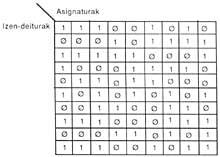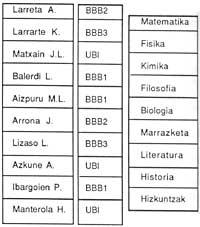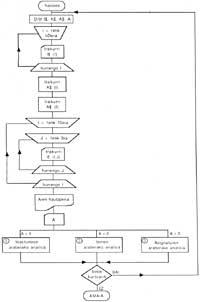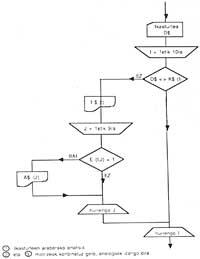Data management program of a center

Planning programs to use the file to the computer is one of the most complex problems. The example below shows how this type of program can be created on computers that do not have a file usage order.
Of course, under these conditions the program will be limited. But on the other hand, this is a simple example that helps to become aware of the possibility of violating the computer to perform new tasks.
This program contains a simple file with the data of a group of students. These data are of three types:
- First and last names
- Subjects
Courses

This example does not take into account the outstanding subjects of the student without taking advantage, although this adaptation is quite simple. The explanatory program has taken a group of ten students and its adaptation or adaptation consists of the storage capacity of the program.
Data is stored in four arrays:
- Name and surname
- Matrix of names and subjects relationships.
matrix Course matrix
Subject matrix
The first three arrays store the data that the name itself indicates. The fourth is a two-dimensional matrix in which a set of zeros and some indicate the subjects in which each student has enrolled.
The matrices used in this example are:
1 LOT OF TWO TO TWO TO THREE YEARS
380 GOSUB 1010: RUN
390 LOCATE 8.4: PRINT "Knowing a data"
400 LOCATE 9.4: PRINT "."
410 GOSUB 1010: RUN TO FOLLOW REM
420 CLS
430 LOCATE 11,5: PRINT " COURSE (1)"
440 LOCATE 13,5: PRINT "
450 LOCATE 15,5 PRINT " SUBJECT (3) 13,5: What input
460 data? Additional
information
Buletina
Bidali zure helbide elektronikoa eta jaso asteroko buletina zure sarrera-ontzian










